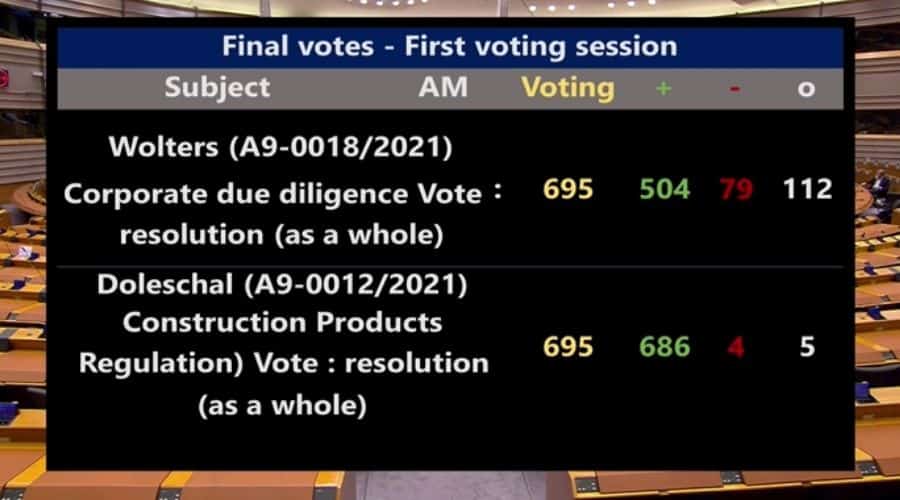On March 10, 2021, the European Parliament voted overwhelmingly in favor of a new EU law — 504 in favor, 79 against, and 112 abstentions — by adopting Parliament’s Legal Affairs Committee (JURI) legislative report by MEP Lara Wolters on corporate due diligence and corporate accountability.
This is an important step forward as this now tasks the European Commission to come up with a draft proposal, which is expected mid-2021, that should require businesses to conduct due diligence in order to prevent and address human rights and environmental risks and impacts within their own operations and value chains, as well as provide access to judicial remedy when harm occurs.
While many of the key goals Freedom United and our allies campaigned for have been endorsed by this vote, there is still room for improvement.
As explained by our allies at Friends of the Earth Europe and the European Coalition for Corporate Justice:
Strong signal from European Parliament
This report sends a strong signal to the European Commission to include a number of key measures in the upcoming legislation. It calls for the introduction of a mandatory corporate due diligence obligation in order to prevent and address adverse impacts on human rights, the environment (including climate change), and good governance in businesses’ operations and value chains.
It mentions that businesses should ensure that their purchasing policies do not cause or contribute to potential or adverse impacts. The report highlights the role of value chain mapping and disclosure in order for companies to better identify their business relationships and recommends disclosure requirements regarding the company’s due diligence strategy.
The report also foresees competent authorities who are empowered to undertake investigations of their own initiative, or as the result of complaints.
Last but not least, it calls on the Member States to ensure that they have a civil liability regime in place in order for companies to be held liable and provide remediation for harm to people and the planet.
Commission must build on this Report
However, those good outcomes cannot overshadow the gaps the Commission should address in drafting the legislation. Civil society organizations are asking for the legislation to mandatorily apply to all businesses; as well as a stronger and harmonized due diligence obligation covering the entire value chain. The due diligence definition should build on the internationally recognized instruments, namely the UN Guiding Principles on Business and Human Rights and OECD Guidelines.
The definition given to human rights, environment, and good governance must be clarified to cover the widest range of impacts across the entire value chain and to match the objectives enshrined in the EU Treaties with respect to those matters.
The report recognizes the need for engagement with a wide range of stakeholders in order to establish and implement a company’s due diligence strategy. The upcoming legislation should ensure that consultation is meaningful and effective.
Furthermore, enforcement mechanisms modeled to address non-compliance or harm caused must provide an effective deterrent. In this regard, we expect the Commission to consider criminal liability or equivalent instruments.
Finally, as outlined in the report, access to justice and remedy for affected individuals and communities when harm has occurred is essential for the success of the upcoming legislation. For the latter, we call on the Commission to establish a civil liability regime with notably strong provisions to facilitate access to justice for victims of corporate abuses at home and abroad. These must include liability for the failure to prevent harm throughout the value chain; a fairer distribution of the burden of proof for all evidentiary elements; and reasonable time limitations for transnational claims.







-
Follow us on Facebook
5.6M
-
Follow us on Twitter
32K
-
Follow us on Instagram
8K
-
Subscribe to our Youtube
5.7K
Donate